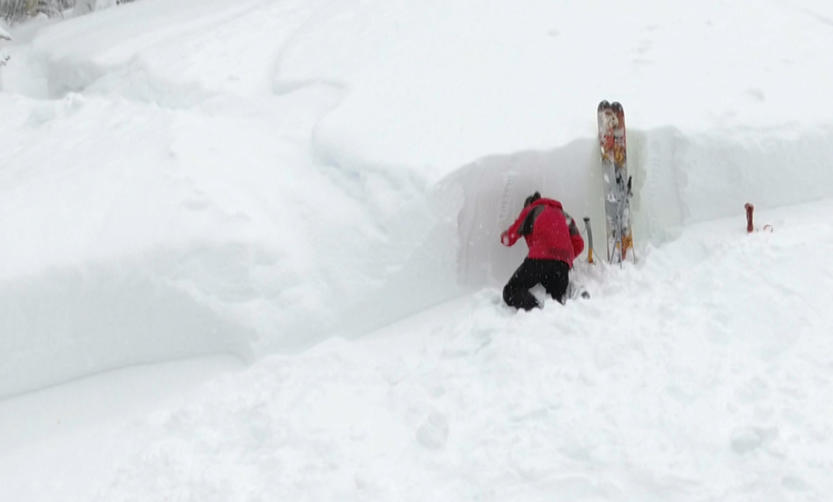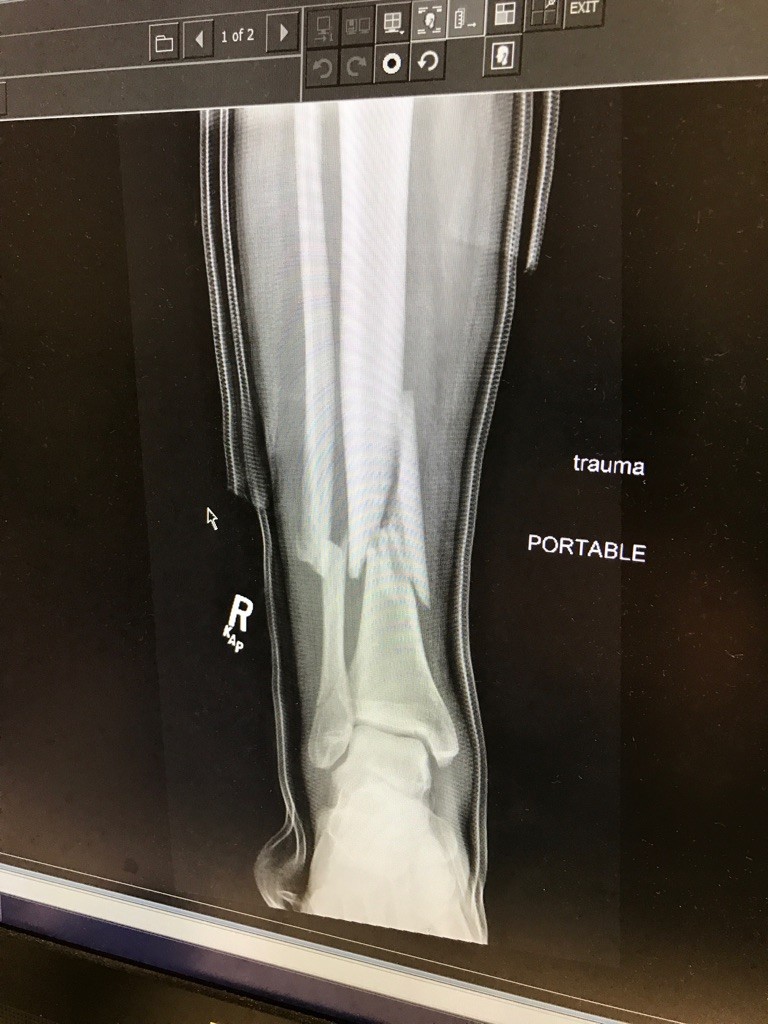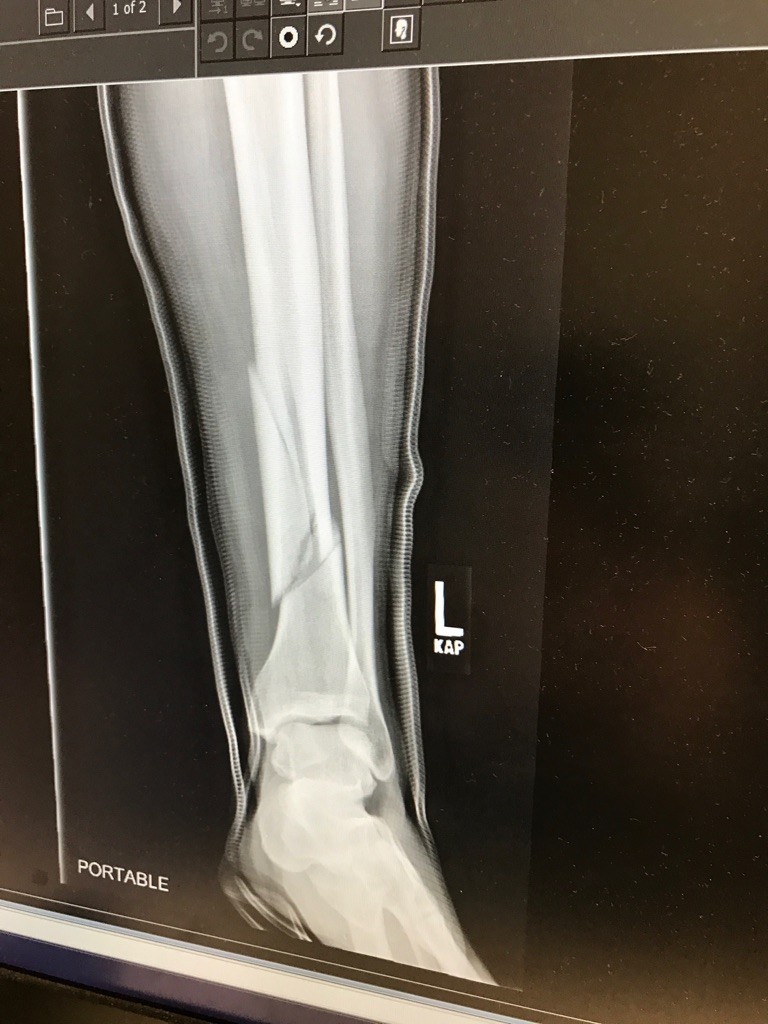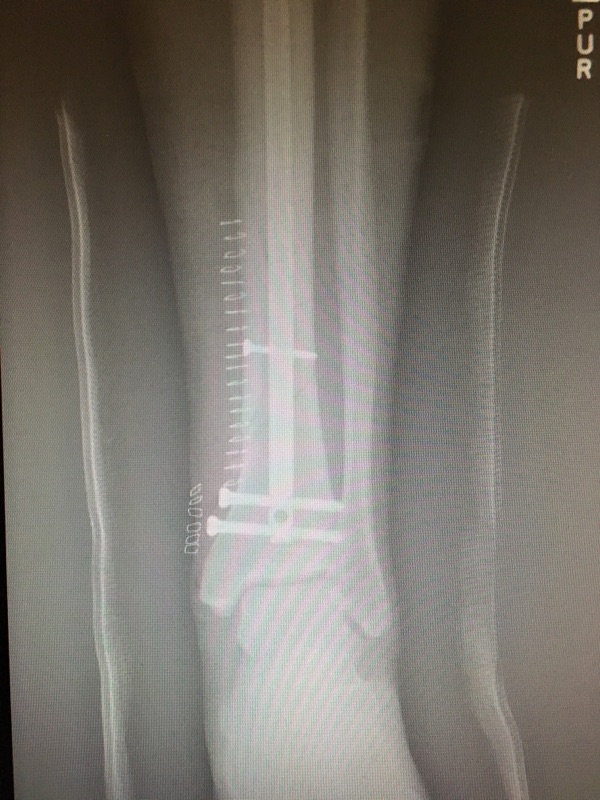January 11 was not a great day for Salt Lake City’s Jeremy Jones but it could have been far worse, it could have been his last. The urban snowboarder who rides for Nitro entered the backcountry of Utah on a mammoth powder day and was in an accident that shattered both his legs.
- Image of Jones Right leg fracture https://www.gofundme.com/387sz6o
- Images of Jones’ left leg fracture https://www.gofundme.com/387sz6o
- Image from https://www.gofundme.com/387sz6o
The first the snowboard world heard of this accident was when his mate set up a GoFund Me page to raise funds for the helicopter rescue and his recovery. The goal of US$50 000 has already been surpassed in two days. According to the GoFundMe page the incident occurred on January 11 in the Utah backcountry but that’s all we know about the accident that felled Jones and there may be a reason why.
Some sleuthing from that date revealed reports of an avalanche with a similar outcome – one snowboarder suffered two broken legs and was heli rescued. This may account for why details of Jones’ accident are sketchy because, should this be his group and there is no confirmation it is, some major group errors were made that put everyone in danger.

Let’s read the Utah Avalanche Center report for January 11 for the Uintas near Salt Lake City where this particular slide occurred.
Heads up… it’s game on and this is the real deal. Once triggered, today’s avalanches will break deep and wide, resulting in a large, dangerous, and most likely unsurvivable avalanche.
In the wind zone, at and above treeline, the avalanche danger is HIGH and might be boarding on EXTREME today. Very dangerous, human triggered and natural avalanches are CERTAIN on steep, wind drifted slopes, especially those facing the north half of the compass, and particularly those with an easterly component to their aspect.
You’ll find a CONSIDERABLE avalanche danger on steep wind drifted slopes at lower and mid elevations and human triggered avalanches are PROBABLE.
I don’t know about you but I read that as stay home, get under the covers, do not go out the door into the backcountry until the snow is more stable.
But this crew of 11 anonymous riders read it differently. According to the Utah Avalanche Center accident report they “rented a private snowcat with the intent of riding in backcountry terrain” but there’s no mention as to whether there was a qualified guide with the snowcat and which operation they hired the cat from.
“After a morning of riding a few laps without any signs of instability, the group decided to push it a little higher in elevation and further to the south.”
Key words? Push it.
The report continues to say “The group was divided in their feelings about the slope, particularly because it was a little steeper. With this in mind, they positioned a few riders in safe locations in case of an avalanche.”
Call me old fashioned but if one person thinks it isn’t worth the risk then no one should go and if that one person is the guide then, well, enough said.
“One rider (it is unknown whether he was the first on the slope or not) decided to jump off a small cliff at the top of the hill.”
Smart move.
“Upon landing, he triggered the avalanche, catching him and one other rider from the group. One of the riders suffered tibia and fibula fractures from hitting trees on the way down the slope, while the other rider was fully buried. Unfortunately, the rider who was fully buried had turned his beacon off earlier in the day because of low batteries.”
Forgive me while I hit my head against my desk. He turned off his beacon on a high to extreme avalanche day riding terrain that some of the group had concerns about? Even if your batteries were dying you stay in the cat, you don’t ride the backcountry with a transceiver that doesn’t work because if you’re buried you may not be found and if your mate is buried you can’t find him.
This guy was lucky, thank god, as the report reveals and you can be guaranteed he’s got himself a life long supply of battery power to prevent this from happening again.
“Eventually, they saw a board sticking out of the snow; the buried rider had decided to pow-surf the run, rather than snowboard. The group was able to use his leash to find him beneath the snow and dig him out quickly. The buried rider didn’t suffer any injuries.” Says the report.
But the tragedy of errors continued for this crew.
“They had no cellphone service and could not get the snowcat working properly, so two members of the group ran 2.3 miles back to the Smith Moorehouse trailhead, got in their trucks, and drove to Kamas where they notified Search & Rescue. A medical helicopter was then dispatched and the injured rider was airlifted to the hospital.”
While we have no confirmation that this accident report is the same accident that felled Jones, though the coincidence is uncanny, either way there is a lot to learn from this anonymous group’s riding decisions for every accident surely brings a learning.
I am not a fan of ‘avalanche’ shaming, we all make mistakes though some mistakes are higher risk than others. But I do get angry, no I get livid, when people make Avalanche 101 mistakes like choosing to turn off a transceiver and keep riding and I get even angrier if these people are supposed to be role models. Though, don’t get me wrong, I understand the lure of powder, the drive of the ego, the pressure from peers. I’ve been there.
But I also know first hand the impact of post critical incidents and the trauma and shock and stress that settles below the skin of those directly involved and I feel for everyone involved in this particular incident that could have been avoided, for some of them may still be shaking.
No mammoth powder day is worth ‘going steeper’ for when the avalanche report clearly says that if you go steeper an avalanche will occur. No powder day. None. No matter how good you are, or think you are, or are told you are.
The mountain will always win.
NB. It is important to understand that the snowboard industry has not one but two Jeremy Jones. One is the big mountain rider, founder of Jones Snowboards and POW (Protect Our Winters) and star of Deeper, Further and Higher big mountain snow films. That Jeremy Jones lives in California. This one hat is the recipient of the GoFundMe page lives in Utah.











Great article Rach….if it makes just one person think twice about their back country decision making, then job well done !
Lenno.
Because everyone survived, I can only say LOL. Damn that was funny, the litany of flashing red lights willfully ignored!
On comment: About the turned off Avy transceiver. Considering the hazard, likely a great idea but not for the reason’s cited ( battery strength) A valid reason to turn it off in high avalanche hazard, one occasionally deliberately used by skilled people, is to strongly give yourself a wise hint:
WHEN THE HAZARD IS HIGH, STAY THE HELL OUT OF AVALANCHE TERRAIN!
I mean after all, if you are not in avy terrain, who needs a beacon?
Picked this up well late. Seems the incidents are one in the same. It’s a paradox, that experience brings complacency I’m glad nothing too serious went down. Here’s JJ’s version of events https://snowboarding.transworld.net/photos/caught-in-an-avalanche-jeremy-jones-reflects-on-his-experience/